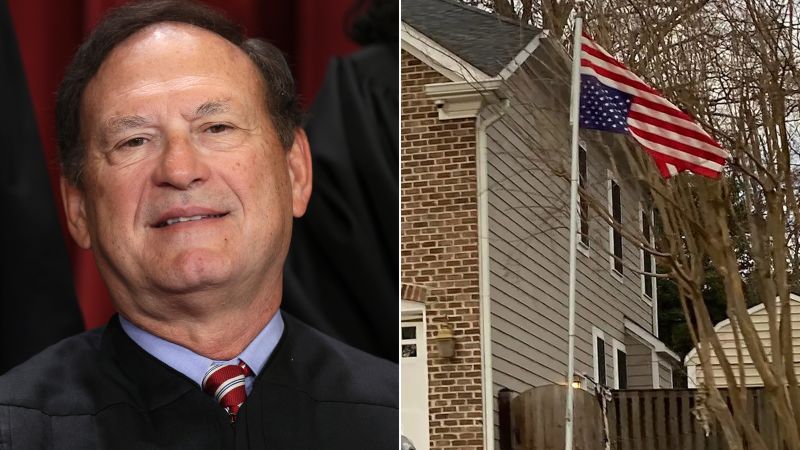Sen. Lindsey Graham’s criticism of Supreme Court Justice Samuel Alito came after a photo surfaced showing an upside-down American flag flying outside Alito’s home following the 2020 election. Alito explained that his wife had flown the flag upside down in response to a neighbor’s use of objectionable and personally insulting language on yard signs. The upside-down flag has been used by some Trump supporters, who have challenged the legitimacy of the 2020 election, as a symbol of their resistance.
Graham’s criticism of Alito was based on his interpretation of the upside-down flag as a symbol of distress and rebellion against the government. The gesture was seen as inappropriate coming from a sitting Supreme Court Justice, who is expected to remain impartial and above political influence. The use of the upside-down flag as a political statement by some individuals has raised concerns about the erosion of democratic norms and the politicization of symbols that represent the United States.
Alito’s explanation of the upside-down flag as a response to offensive language from neighbors sheds light on the personal reasons behind the gesture. However, the context in which the flag was displayed, following a contentious election and amid widespread protests and unrest, has heightened the significance of symbols and gestures that are often interpreted as political statements. The use of the upside-down flag by some Trump supporters as a symbol has added to the controversy surrounding Alito’s actions.
The tension between political expression and the responsibilities of public figures, such as Supreme Court Justices, to remain impartial and uphold democratic values is highlighted in this situation. Graham’s criticism of Alito reflects concerns about the potential impact of political statements by individuals in positions of influence on public perception and trust in democratic institutions. The use of symbols such as the upside-down flag to convey political messages highlights the challenges of navigating personal beliefs and responsibilities to uphold the rule of law and the principles of democracy.
The controversy surrounding Alito’s upside-down flag gesture also brings into question the role of symbols in shaping political discourse and public opinion. Symbols such as the American flag hold a deep significance and carry different meanings for individuals and groups, depending on the context in which they are used. The politicization of symbols and gestures, such as the upside-down flag, reflects broader divisions within society and the increasing polarization of political beliefs.
In conclusion, the criticism of Justice Alito’s display of an upside-down American flag outside his home following the 2020 election reflects broader concerns about the intersection of politics, symbols, and public figures. The use of symbols such as the upside-down flag as political statements raises questions about the boundaries between personal expression and professional responsibilities, as well as the impact of such gestures on public perception and trust in democratic institutions. The controversy surrounding Alito’s gesture serves as a reminder of the challenges of navigating political expression in a polarized and contentious political environment.


